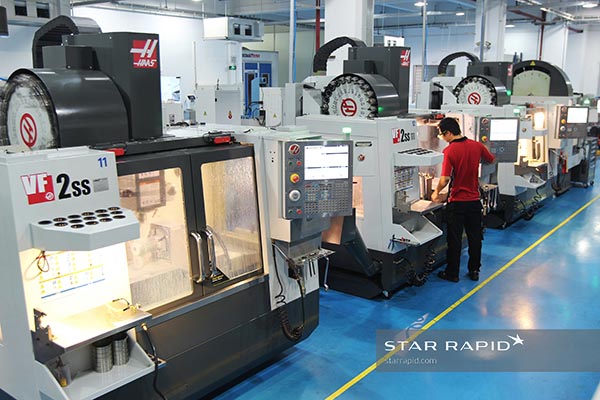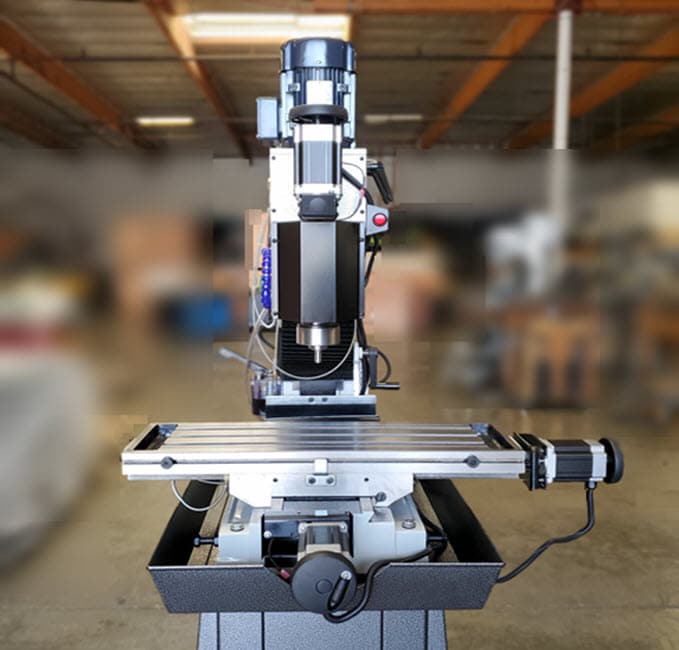Table of Contents
If you’re new to CNC milling or just want to brush up on your skills, one crucial step in the process is learning how to touch off tools. This skill allows you to set the correct height for your cutting tool, ensuring that your workpiece is machined accurately and efficiently. In this guide, we’ll explore the basics of how to touch off tools in CNC milling and provide some tips to help you get started.
Whether you’re working with wood, metal, or plastic, proper tool height is essential for achieving the desired results. By following a few simple steps, you can ensure that your CNC milling process is both safe and effective. So, if you’re ready to learn how to touch off tools like a pro, read on to discover some expert tips and tricks.
To touch off tools in a CNC mill, follow these steps:
- Place a piece of paper on the mill table and lower the tool until it touches the paper.
- Zero the Z-axis on the machine.
- Install the tool you want to touch off.
- Lower the tool until it touches the same spot on the paper.
- Adjust the Z-axis until the digital readout matches the thickness of the paper.
- Zero the Z-axis again.
- Your tool is now properly touched off and ready for use.
How to Touch Off Tools in CNC Mill?
If you are a CNC machinist, you understand the importance of tool touch-off in CNC milling. Touching off tools correctly ensures accurate and repeatable machining results. In this article, we will explain how to touch off tools in CNC mill step by step.
What is Tool Touch-Off?
Tool touch-off is a process of setting the Z-axis height of a cutting tool precisely. It is the point where the tool is just touching the surface of the workpiece. By touching off the tool, you can ensure that the tool is positioned accurately and that the machine is aware of the tool’s position.
To touch off the tool in CNC mill, you need to follow the below steps:
- Install the Tool: The first step is to install the tool in the spindle of the machine. Ensure that the tool is clean and free from debris.
- Move the Tool: Move the tool to the position where you want to touch off the tool. You can use the jog wheel or the control panel to move the tool.
- Lower the Tool: Lower the tool gently until it touches the surface of the workpiece. You can use the jog wheel to lower the tool slowly.
- Set the Zero: Once the tool touches the workpiece, set the Z-axis position to zero. You can do this by pressing the “set zero” button on the control panel. This will set the Z-axis height of the tool to zero.
- Retract the Tool: After setting the zero, retract the tool from the workpiece. You can do this by using the jog wheel or the control panel.
- Repeat the Process: Repeat the process for every tool you are going to use in the machining process.
Benefits of Tool Touch-Off
Tool touch-off is a critical process in CNC milling. Some of the benefits of tool touch-off are:
- Ensures Accurate Machining: Touching off the tool ensures that the tool is positioned accurately. This ensures that the machining process is accurate and repeatable.
- Reduces Scrap: Accurate machining results in less scrap and reduces the cost of production.
- Increases Tool Life: Touching off the tool ensures that the tool is not overused, which increases tool life and reduces the cost of tool replacement.
Touch-Off Tool Vs. Pre-Set Tool
In CNC milling, there are two methods of setting the tool height: touch-off tool and pre-set tool. While both methods are used to set the Z-axis height of the tool, they differ in the process and accuracy.
A touch-off tool is a process of setting the tool height by touching the tool to the surface of the workpiece. It is a manual process and requires the operator’s skill and experience. On the other hand, a pre-set tool is a process of setting the tool height using a tool pre-setter. It is an automated process and is more accurate than the touch-off tool.
However, the touch-off tool has its advantages. It is a quick and easy process, and it does not require any additional equipment. Moreover, it is more flexible than pre-set tool, as it can be used for any tool and any workpiece.
Conclusion
Tool touch-off is a critical process in CNC milling. It ensures accurate machining and reduces scrap and tool replacement costs. By following the steps mentioned above, you can touch off the tool correctly and ensure accurate and repeatable machining results.
Frequently Asked Questions
In CNC milling, touching off tools is an important process that ensures proper tool height and accurate machining. Here are some frequently asked questions and their answers about how to touch off tools in CNC mill:
What is “touching off” a tool in CNC milling?
Touching off a tool in CNC milling means setting the tool’s height relative to the workpiece surface. This process ensures that the tool will be at the correct height to make precise cuts without damaging the tool or the workpiece.
The process involves gently touching the tool to the surface of the workpiece and setting the Z-axis to zero. This tells the CNC machine the exact position of the tool relative to the workpiece surface.
Why is touching off important in CNC milling?
Touching off is important in CNC milling because it ensures the tool is at the correct height to make precise cuts. If the tool is too high, it may not cut deep enough, resulting in poor quality parts or even tool breakage. If the tool is too low, it may damage the workpiece or the tool itself.
Touching off also helps to compensate for any variations in the workpiece surface. By setting the tool height based on the actual surface of the workpiece, the CNC machine can adjust for any irregularities and make more accurate cuts.
What tools are needed to touch off in CNC milling?
To touch off in CNC milling, you will need a tool probe or a touch plate that is compatible with your CNC machine. A tool probe is a small device that attaches to the spindle and can be used to measure the height of the tool relative to the workpiece surface. A touch plate is a flat piece of metal that can be placed on the workpiece surface and used to touch off the tool.
You will also need a basic understanding of your CNC machine’s software and how to set the Z-axis to zero.
How do you touch off a tool using a touch plate?
To touch off a tool using a touch plate, first, make sure the plate is clean and free from any debris or contaminants. Place the touch plate on the workpiece surface and connect it to the CNC machine.
Next, move the tool over the touch plate and lower it until it makes contact. Use the CNC machine’s software to set the Z-axis to zero, then move the tool away from the touch plate. The tool is now set to the correct height for machining.
How often should tools be touched off in CNC milling?
The frequency of touching off tools in CNC milling depends on several factors, including the type of material being machined, the complexity of the part, and the precision required. In general, it is a good practice to touch off tools before each new job or when changing tools.
If you notice any issues with the quality of the parts being produced, such as inconsistent cuts or tool breakage, it may be necessary to touch off the tools more frequently.
In conclusion, learning how to touch off tools in CNC milling can be a game-changer for your machining operations. By properly calibrating your tools, you can increase precision, reduce errors, and ultimately produce higher-quality parts.
Remember, it’s important to follow the correct steps for touching off your tools. This includes selecting the correct tool, setting the tool offset, and using a touch off plate. By taking the time to properly touch off your tools, you’ll be setting yourself up for success in your machining endeavors.
So, whether you’re a seasoned machinist or just starting out, taking the time to learn how to touch off tools in CNC milling is a skill that can benefit you for years to come. By following the right procedures and paying attention to detail, you’ll be well on your way to producing high-quality parts with precision and accuracy.
Request a quote today!
[contact-form-7 id="1578" title="Contact form"]
Please compress the file into a ZIP or RAR file before uploading. Alternatively, send through your RFQ by email.
enquires@unitymanufacture.com





